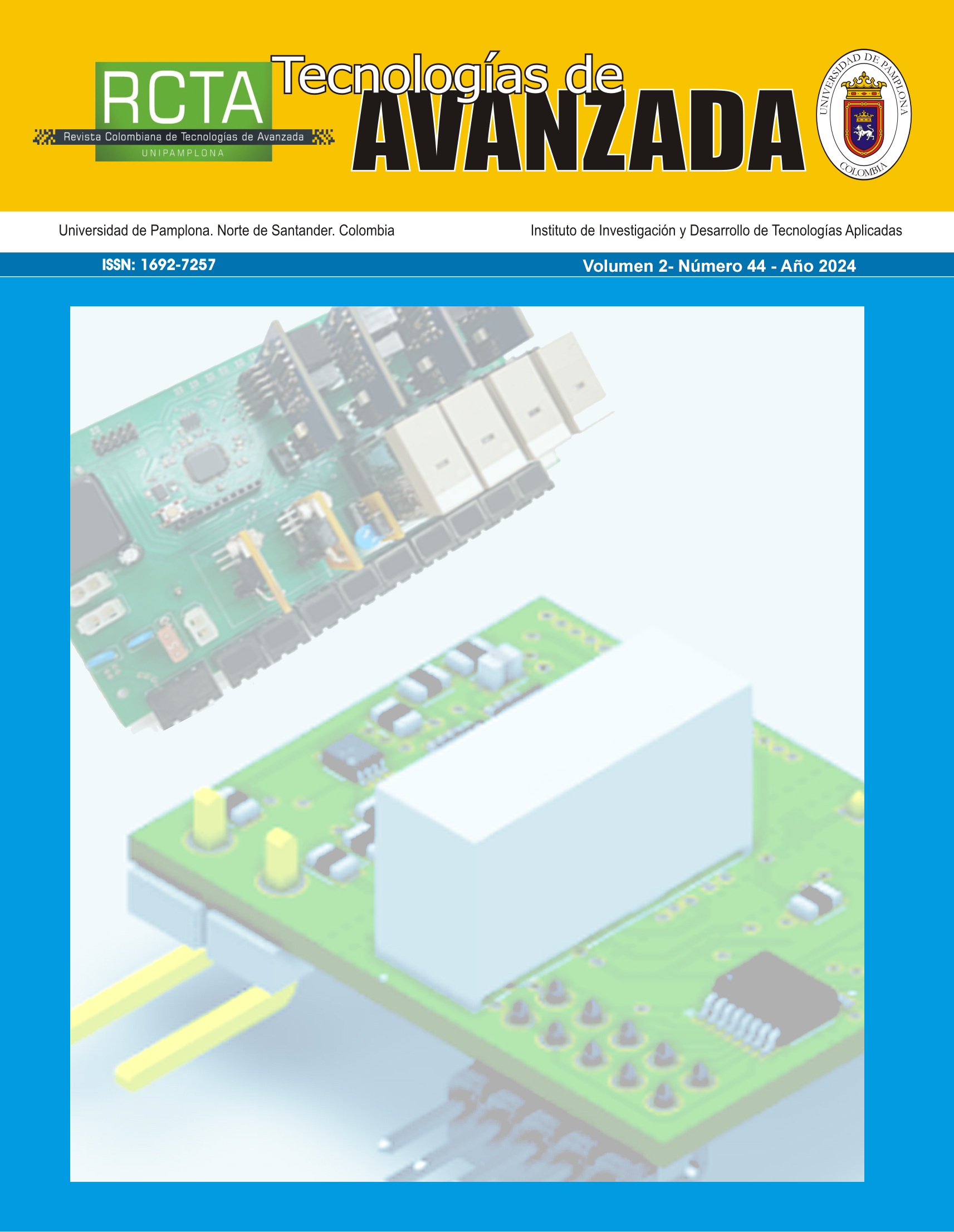Impacto del uso de inteligencia artificial para la creación de contenidos digitales en estudiantes del pregrado en ingeniería multimedia
DOI:
https://doi.org/10.24054/rcta.v2i44.3046Palabras clave:
Inteligencia artificial, ingeniería, ingeniería multimedia, creatividad y éticaResumen
El estudio analizó el impacto del uso de inteligencia artificial en la producción de contenidos digitales entre estudiantes universitarios de Ingeniería Multimedia en la Universidad Simón Bolívar, sede Cúcuta, durante el semestre académico 2023-2. El objetivo fue evaluar cómo esta tecnología influye en el desarrollo de habilidades creativas y técnicas, así como en la autonomía creativa de los estudiantes, considerando su comprensión de la atribución de autoría y la ética en la colaboración entre humano y AI. Realizado dentro de un paradigma positivista con diseño deductivo-lógico cuantitativo, se recopilaron datos mediante una encuesta a una muestra aleatoria simple de 123 estudiantes de un total de 178, con una mortalidad muestral del 6%. Los resultados mostraron una percepción dual sobre el impacto de la IA en la mejora de habilidades, destacando la necesidad pedagógica de abordar la IA en la formación profesional.
Descargas
Referencias
A. Kaplan and M. Haenlein, “Siri, Siri, in my hand: Who’s the fairest in the land? On the interpretations, illustrations, and implications of artificial intelligence,” Bus Horiz, vol. 62, no. 1, pp. 15–25, 2019, doi: https://doi.org/10.1016/j.bushor.2018.08.004.
M. Haenlein and A. Kaplan, “A Brief History of Artificial Intelligence: On the Past, Present, and Future of Artificial Intelligence,” Calif Manage Rev, vol. 61, no. 4, pp. 5–14, Aug. 2019, doi: 10.1177/0008125619864925.
M. A. Boden, “Artificial intelligence: a very short introduction,” Oxford University Press, 2018.
C. Bhargava and P. K. Sharma, Artificial In telligence. Boca Raton: CRC Press, 2021. doi: 10.1201/9781003095910.
E. Parliament, D.-G. for Parliamentary Research Services, and P. Boucher, Artificial intelligence – How does it work, why does it matter, and what we can do about it? European Parliament, 2020. doi: doi/10.2861/44572.
O. Campesato, Artificial Intelligence, Machine Learning, and Deep Learning. Mercury Learning & Information, 2020. [Online]. Available: https://books.google.com.co/books?id=aUr8ywEACAAJ
PwC, "Will robots really steal our jobs? An international analysis of the potential long-term impact of automation," 2018. [En línea]. Disponible: https://is.gd/ApKuPI
J. Hatzius, J. Briggs, D. Kodnani, y G. Pierdomenico, "The potentially large effects of artificial intelligence on economic growth," Goldman Sachs, 26 de marzo de 2023.
T. H. Davenport and N. Mittal, “How Generative AI Is Changing Creative Work,” Harvard Business Review. Accessed: Mar. 12, 2024. [Online]. Available: https://hbr.org/2022/11/how-generative-ai-is-changing-creative-work
E. Mendoza y A. Mendoza Marchán, "Síntesis de la Investigación Positivista," AULA VIRTUAL, vol. 4, no. 10, pp. 156-160, 2023. [En línea]. Disponible: https://doi.org/10.5281/zenodo.8132312
C. Ricoy, "Contribución sobre los paradigmas de investigación," Revista do Centro de Educação, vol. 31, no. 1, pp. 11-22, 2006.
C. A. Ramos, "Los paradigmas de la investigación científica," Avances En Psicología, vol. 23, no. 1, pp. 9-17, 2015. [En línea]. Disponible: https://doi.org/10.33539/avpsicol.2015.v23n1.167
R. Ruiz, Historia y evolución del pensamiento científico. México: Eumed, 2006.
B. Márquez, "LA INVESTIGACIÓN POLITOLÓGICA DESDE LO CLÁSICO A LO CONTEMPORÁNEO," Comisión de Arbitraje Dr. Mario Morales Dr. José D Mora Dr. Basilio Sánchez Dr. Javier Méndez, vol. 250, 2014.
G. Mousalli-Kayat, Métodos y diseños de investigación cuantitativa. 2015.
J. R. R. Labrador, J. D. M. D. Campos y J. C. Anguita, "La encuesta como técnica de investigación. Elaboración de cuestionarios y tratamiento estadístico de los datos (I)," Atención primaria: Publicación oficial de la Sociedad Española de Familia y Comunitaria, vol. 31, no. 8, pp. 527-538, 2003.
S. M. Maldonado Luna, "Manual Práctico Para El Diseño De La Escala Likert," Xihmai, vol. 2, no. 4, 2012. [En línea]. Disponible: https://doi.org/10.37646/xihmai.v2i4.101
D. Sulbarán, Medición de actitudes. Caracas: Editorial de la Universidad Central de Venezuela, 2009.
R. Hernández Sampieri, C. Fernández Collado y P. Baptista Lucio, Metodología de la Investigación, 4ta ed. DF, México: McGraw Hill, 2006.
J. Pérez, "Estadística descriptiva e inferencial," 2016. [En línea]. Disponible: https://url2.cl/HnqYk
L. O. Pérez González, "Microsoft Excel: una herramienta para la investigación," MediSur, vol. 4, no. 3, pp. 68-71, 2006.
L. Molinero, "Gráficos de datos estadísticos en medicina," 2003. [En línea]. Disponible: https://www.alceingenieria.net/bioestadistica/graficos.pdf
Descargas
Archivos adicionales
Publicado
Número
Sección
Licencia
Derechos de autor 2024 Pablo Emilio Cortes Sánchez, Raúl Eduardo Rodríguez Ibañez, Jessica Lorena Leal Pabón

Esta obra está bajo una licencia internacional Creative Commons Atribución-NoComercial 4.0.











